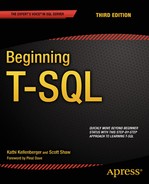Foreword
We all have to start somewhere, and we start different things at different stages in our lives. There are a few skills that come naturally to us and a few we need to learn.
Let’s look at a quick example—we learn how to walk with very little help when we are children, but we need help when we start to learn swimming. Both of the activities have almost the same kind of body behavior—we move our hands, legs, and head in a systematic rhythm to achieve our goal. However, swimming is a skill we needed to learn and walking was a natural process.
Learning new technology is a very complicated affair. Although computers are a part of our lives and have blended into our daily routines, the behind-the-scene situation is still mysterious. Just like we needed training to learn how to swim, we also need comprehensive training to master technology. It is equally important that the trainer also understands the importance of training. My father always told me “An expert is not necessarily a good teacher, but a teacher must be an expert.”
If you ask a hundred database experts how they started to work with databases, the most common answer you will get is accidently. It is true that most database professionals were not trained for databases, but rather they started with databases accidently. The reasons for this accident can be different, but the fact remains that we all ended up working with databases when we are not expecting it.
My own story is that I was working as a software developer when one fine day I was asked to manage the database until a new administrator for our database could be found. I was happy to take on the challenge of managing the database, but the real challenge for me was to learn database administration overnight. I ran to a nearby bookstore and purchased five database books. For the next five days, I was up every night until four in the morning reading different books.
As I started to read, I learned a lot about databases. But I also learned that a good educational book will give support to the learner. Instead of testing the user early, the book places challenges at strategic intervals. It is extremely important that a book presents the experience of learning naturally. If a technology book can teach us a complicated subject with the same ease as learning to walk, the book is capable of changing how we progress in our professional lives.
Of the five books I purchased, I found one book that taught me the complicated subject of SQL Server in simple words. The book was capable of intriguing me to learn and practice more. I instantly felt connected with the book and the book’s author. The book was authored by Kathi Kellenberger. Since that time, I have read every single one of her books. It gives me great confidence that I have made a right choice for my personal learning when I see these books as part of SQL curriculums across the world.
I have been working with databases for over 10 years now, and I am no longer a beginner. I think I am way beyond the basics, but when I read this book while writing this foreword, I realized that every new version of SQL Server introduces new concepts. I will admit that while reading this book, I learned about Azure database and the newly introduced features related to SQL performance. I also learned how T-SQL has been enhanced from version 2008 to 2012 and from 2012 to 2014. It was interesting to see how the author explains a concept of performance across various chapters. She even explicitly called out a few mistakes to avoid while working with SQL Server.
I am delighted that this book is in our hands now so we can all learn T-SQL from an industry expert who also is a great teacher.
—Pinal Dave
SQLAuthority.com
